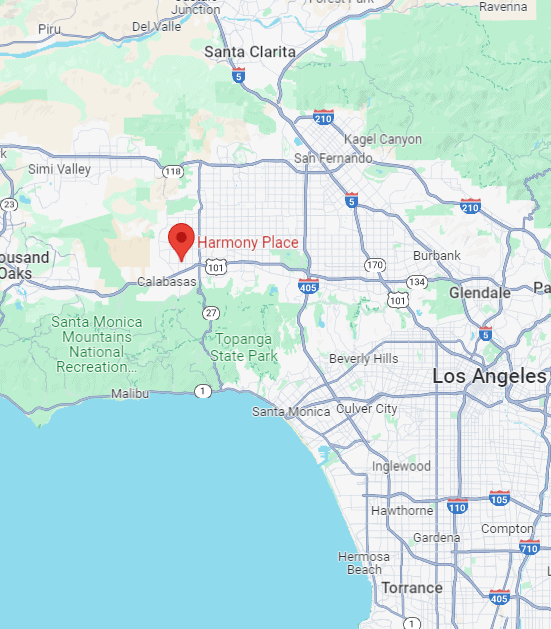Substance Use Disorder (SUD) Rehab for Workers in the Trade, Utility, and Transportation Sectors Across California
Harmony Place runs detox and rehab centers that provide addiction treatment for trade, transportation, and utility workers in California. Our confidential rehab for workers in California’s utility and transit sectors is crafted with the unique challenges of your profession in mind, providing private, adaptable, and evidence-based treatment so you can prioritize recovery without interfering with your work obligations.
If you’re looking for rehab programs for professional workers in skilled trades and transportation in California, contact us at Harmony Place. On this page, you’ll discover how to locate leading rehab centers for the labor force in the trade and transportation sectors, explore various addiction treatment solutions, understand the advantages of rehab designed for technicians and laborers in transportation and utility roles, and obtain details on the cost of drug and alcohol rehab for transportation, utility, and trade workers in California.
How Prevalent Is Substance Use Disorder Among Workers in Trade, Transportation, and Utility Industries?
Substance Use Disorder (SUD) is relatively common among trade and utility sector professionals in California, with rates exceeding many other job fields. Research indicates that California’s transportation and utility workforce consistently exhibits higher levels of excessive alcohol consumption, illegal drug use, and misuse of prescription opioids, which increase the likelihood of workplace accidents and absenteeism.
The factors driving this prevalence include labor-intensive work, extended or unpredictable hours, and exposure to stressful or dangerous conditions. You might turn to substances to manage fatigue, pain, or stress, potentially leading to addiction over time. The combination of significant physical demands and challenging schedules makes skilled tradespeople in the utility and transit industries especially susceptible to SUD.
Are Tradesmen Able to Receive Treatment While Remaining Employed?
Skilled trade and public infrastructure workers in California can access addiction treatment while still working. Numerous addiction treatment programs offer adaptable schedules, permitting you and other blue-collar employees in the utility and transit workforce to participate in therapy sessions during nights or weekends.
Outpatient rehab programs allow you and other union workers in the trade, transportation, and utilities sectors to keep your jobs while receiving assistance for substance abuse or mental health issues. Certain treatment facilities, including inpatient rehab centers, also work with companies to offer job-protected leave under regulations such as the Family and Medical Leave Act (FMLA).
These drug and alcohol rehab treatment programs emphasize privacy and develop tailored plans that accommodate work requirements, ensuring you can concentrate on recovery without jeopardizing your career or professional standing. If you want more details about addiction treatment for workers in the trade and utility sectors across California, contact us at Harmony Place.
Are Addiction Rehab Options Available That Focus on the Needs of the Transportation / Utilities Workers?
You can find rehab for utility technicians and transit professionals in California. These specialized addiction recovery services recognize the safety-sensitive demands of your job and offer confidential, adaptable treatment schedules, allowing you to recover without risking your professional licenses, certifications, or ongoing job duties.
Alcohol and drug rehab for skilled trade and transportation staff in California provides personalized care plans that consider the long hours, rotating shifts, and high-pressure environments that are common in transportation crews and utility field teams. This specialized rehabilitation for alcoholism and drug addiction might include occupational counseling, peer support from others in similar fields, and relapse prevention strategies designed for the safety-critical aspects of your work, aiding in both your recovery and a triumphant return to your role.
If you’re interested in learning more about our trade and transportation industry addiction treatment in California, we invite you to contact us at Harmony Place and explore our services.
Statistics on Substance Use Disorder in the Trades
If you’re working in the trades, transportation, or utilities fields, you’re facing a higher risk for Substance Use Disorders (SUDs). For instance, if you’re in transportation or material handling, you might be aware that the rate of SUDs is 13.9% over the past year, much higher than the national average of 9.5% for full-time workers aged 18 to 64.
In California, this issue has led to a concerning increase in workplace overdose deaths, surpassing fatalities from falls or machinery accidents in 2021 and 2022. By 2022, overdoses made up 18% of workplace deaths in the state, compared to 11% nationwide. Despite these alarming statistics, only about 10% of the approximately 2.7 million Californians with SUDs received treatment last year.
In the utilities sector, SUDs were reported at 11.5% over the past year, also above the national average for full-time employees. To combat safety issues, the U.S. Department of Transportation requires that if you’re an employer, you must refer any driver who has used controlled substances or misused alcohol to a Substance Abuse Professional (SAP) for evaluation, regardless of existing disciplinary policies.
This highlights the urgent need for effective prevention, early intervention, and accessible treatment options specifically designed for trade, transportation, and utilities workers in California, where the high-stress and physically challenging nature of the work can increase the risk of developing substance use disorders.
What Job Titles Are Considered Part of the Trade, Transportation, and Utilities Sectors?
Trade, transportation, and utilities workers in California cover a diverse array of jobs that ensure your infrastructure, energy, and logistics systems operate efficiently. These fields include roles that require skilled labor, technical know-how, and the operation of intricate machinery or vehicles.
Below is a list of common positions within these sectors, though it is not all-inclusive—many other roles are essential to keeping your communities and businesses running smoothly:
Truck Drivers (Long-Haul and Local)
You are vital to the transportation industry, overseeing the movement of goods and materials across towns, regions, and even nations. As a long-haul driver, you navigate extensive routes, often spending days or weeks on the road, while a local driver manages shorter routes and daily deliveries. Both roles demand specialized licenses and a solid grasp of road safety and logistics.
Line workers / Electrical Utility Technicians
As a line worker or electrical utility technician, you maintain and fix electrical power systems, such as overhead and underground lines. You often work in demanding settings, sometimes at high altitudes or in unfavorable weather, to ensure homes and businesses have a steady supply of electricity.
Electrician
As an electrician, you set up, maintain, and fix electrical systems in homes, businesses, and factories. Your tasks include wiring, resolving circuit issues, and ensuring compliance with electrical regulations. You frequently work alongside contractors and engineers to ensure projects stay on track and meet safety standards.
Power Plant Operators
You manage and oversee the machinery that produces electricity. You ensure the facilities operate smoothly by adjusting controls and addressing emergencies as needed. You need to comprehend complicated systems and safety procedures, often working in shifts to ensure uninterrupted energy generation.
HVAC Technicians
As an HVAC (Heating, Ventilation, and Air Conditioning) technician, you install, maintain, and fix heating and cooling systems in homes, offices, and industrial buildings. Your job demands mechanical and electrical expertise, along with problem-solving abilities, to ensure environments remain comfortable and systems operate efficiently.
Public Transit Operators (Bus, Subway)
You operate buses, trains, and other urban transport systems, ensuring passengers arrive safely and on time. These positions require adherence to tight timetables, familiarity with local routes, and the ability to handle difficult traffic or passenger situations effectively and swiftly.

We Will Check Your Addiction Treatment Insurance
When Is It Better for a TTU Worker to Choose Inpatient Rehab Over Outpatient Rehab?
If you’re part of the trade, transportation, and utilities workers in California, opting for inpatient rehab is often preferable if your substance abuse has become so severe that it interferes with your daily routine, job performance, or personal safety, as one of the blue-collar employees in the utility and transit workforce.
Residential addiction treatment offers a structured, round-the-clock setting that eliminates external stimuli, making it ideal for you if you require intensive support, medical oversight, or a respite from demanding work environments to concentrate entirely on recovery.
Outpatient rehab programs may be suitable for milder or moderate substance abuse issues, but they require significant self-control and a stable home setting. If your schedule, environment, or stress levels from being part of the trade and utility sector professionals in California make it challenging to remain sober while fulfilling work responsibilities, inpatient treatment might be the safer and more effective option to establish a strong recovery foundation before returning to your professional life.
If you require assistance with navigating drug and alcohol rehab for transportation, utility, and trade workers in California, contact us at Harmony Place. We begin with a free assessment to determine whether outpatient rehab programs or residential addiction treatment is the most suitable path for you.
How Long Do Most Trade and Utility Workers Stay in Addiction Treatment Programs?
You, as a trade, transportation, or utility worker, might find yourself spending anywhere from one to three months in structured addiction treatment programs. This duration depends on the intensity of your substance abuse, the type of program you choose, and your unique recovery needs.
Residential addiction treatment usually spans one to two months, providing comprehensive, around-the-clock care, while outpatient rehab programs might last longer, often up to three months or more, allowing you to manage treatment alongside your work commitments. Shorter detox-focused stays typically last three to seven days, concentrating on safely handling withdrawal symptoms. On the other hand, long-term residential programs might extend three months or longer for more intricate situations.
Ultimately, the length of your treatment is customized to your physical health, addiction severity, and personal conditions, ensuring you get the necessary support for a successful recovery. If you require help in figuring out the appropriate duration of addiction treatment for trade, transportation, and utilities workers in California that suits your needs, contact us at Harmony Place.

Addiction Treatment for Trade and Utility Workers in the Los Angeles Area
If you are looking for rehab programs for transportation and utility workers in Los Angeles, California, contact us at Harmony Place. We can assist you in finding a private drug rehab tailored to licensed utility and transit technicians in California. Contact us by calling (855) 652-9048 to discover more about holistic rehab treatment for residential and municipal utility service teams.
Harmony Place Rehab Centers in Southern California
Situated in the tranquil Woodland Hills area, our affordable rehab facilities offer top-tier detoxification programs, residential therapy, and dual-diagnosis treatment. Our around-the-clock facilities provide private, cozy inpatient lodging, guaranteeing privacy and a nurturing atmosphere for union members in California’s trade and utility fields.
Harmony Place
23041 Hatteras St.
Woodland Hills, CA 91367
Harmony Place East
22913 Burbank Blvd.
Woodland Hills, CA 91367
What Are the Best Ways for Transportation / Utilities Workers to Locate Nearby Addiction Treatment Options?
Finding a suitable addiction treatment program for transportation and utilities workers can be daunting, but simplifying the process can make it more manageable. Rather than spending countless hours online, contact us at Harmony Place, and we’ll help you connect with a program that fits your busy shift schedule.
Here’s a straightforward guide to assist you in locating nearby drug and alcohol rehab for utility and transportation employees in Southern California:
Step 1: Identify Your Needs
Decide the type of treatment required—detox, residential, outpatient, or dual diagnosis rehab treatment programs for roles like drivers, line workers, or field technicians. Consider factors such as program duration, schedule adaptability, and insurance coverage.
Step 2: Perform a Targeted Online Search
Utilize search engines with specific phrases, such as:
- “Best drug rehab centers for transportation workers nearby”
- “Drug rehab near me for supervisors and team leads in transit and utilities”
- “Alcohol and drug programs for utility workers in [City/State]”
- “Residential addiction treatment for heavy equipment operators in public works and utilities near [ZIP code]”
- “Flexible substance use disorder rehab programs for transportation and utility staff [City/State]”
Step 3: Investigate Program Details
Review private rehab websites for information on their services, accepted insurance, locations, and available treatment formats. If you plan to continue working, focus on programs with flexible or evening schedules.
Step 4: Check Reviews and Verify Credibility
Examine online reviews, Google ratings, and state licensing information. Look for accreditation from bodies like The Joint Commission or CARF International.
Step 5: Contact Programs Directly
Reach out to luxury rehab centers via phone or email to inquire about availability, costs, and program offerings. Be clear about your work schedule, including rotating shifts or on-call duties, to ensure they can accommodate your needs.
Step 6: Leverage Local Resources and Hotlines
- Substance Abuse and Mental Health Services Administration (SAMHSA) Treatment Locator: https://findtreatment.gov
- Local health departments or union support programs for transportation and utility workers
- Employee Assistance Programs (EAP) through your employer
Step 7: Schedule a Free Assessment
Many 24/7 rehab facilities, including Harmony Place, offer free assessments to help you find the right program. This can provide insights into costs, available options, and next steps.
What Kinds of Rehab Programs Are Offered to Transportation / Utilities Industry Employees?
If you are part of California’s transportation and utility workforce, you might encounter physically demanding tasks, extended or irregular hours, high-pressure settings, and stringent performance standards. These factors can heighten your risk of substance abuse. Thankfully, there are alcohol and prescription drug rehab programs designed to accommodate the labor force in the trade and transportation sectors.
Even though this is not an exhaustive list, there are various tiers of trade and transportation industry addiction treatment in California:
Inpatient or Residential Programs
Residential rehabilitation facilities offer round-the-clock support for addiction recovery in a controlled environment, enabling you to temporarily leave behind job-related demands and everyday stress completely. If you’re employed in the transportation or utilities sectors, these programs provide medical oversight, personal and group counseling, and a community centered on recovery.
Such comprehensive care is particularly beneficial if you’re dealing with severe substance dependency or concurrent mental health disorders, as it provides concentrated treatment while eliminating outside distractions during the initial recovery phase.
Partial Hospitalization Programs (PHP)
Partial Hospitalization Programs (PHPs) provide organized daytime care without requiring overnight accommodations. You’ll participate in several hours of therapy and counseling daily for several days each week, then go back to your home or a sober living environment in the evenings.
PHPs can be an excellent option if you’re a worker in the transportation or utilities sectors who requires intensive treatment and close supervision while keeping a stable home environment or slowly transitioning from a residential facility.
Intensive Outpatient Programs (IOP)
Intensive Outpatient Programs (IOPs) allow you to keep a part-time job while participating in therapy sessions multiple times a week. These programs offer guidance, education on preventing relapse, support for dual diagnosis, and peer groups tailored for technicians and laborers in transportation and utility roles.
IOPs are effective if you require adaptable treatment that helps you use recovery techniques in everyday environments while preserving your work duties and connections.
Online Addiction Rehab
Online addiction rehab provides therapy, counseling, and recovery education via secure virtual platforms. This alternative is perfect if you’re a skilled trade or public infrastructure worker in California and have irregular shifts, lengthy commutes, or limited access to local treatment facilities.
With virtual rehabilitation, you can obtain expert guidance and support from home, integrating care into your work schedule without compromising privacy or quality.
Sober Living
Sober living residences provide a secure, drug-free environment if you’re participating in outpatient rehab programs or returning to employment post-rehabilitation. These homes assist trade, transportation, and utilities workers in California in establishing healthy habits, embracing responsibility, and developing supportive relationships as they slowly reintegrate into daily life and their jobs.
Which Types of Addiction Treatment Programs Are Available Nearby for Trade, Transportation, and Utilities Workers?
If you are one of the many trade, transportation, or utilities workers in California and need assistance with substance abuse issues, understanding your treatment options can help you attain sobriety. Although this list is not comprehensive, it outlines various types of addiction treatment programs that may be accessible in your area.
Medical Detox
Medical detox assists you and other trade, transportation, and utilities workers in California in safely eliminating drugs or alcohol from your body under expert supervision. It is usually the initial phase of recovery, enabling you to handle withdrawal symptoms in a secure setting.
Medication-Assisted Treatment (MAT)
Medication-Assisted Treatment (MAT) integrates FDA-approved drugs with therapy sessions and behavioral support. It’s often utilized to address opioid or alcohol addiction. If you’re part of California’s transportation and utility workforce and have an unpredictable schedule or extended shift, MAT can diminish urges and foster steadiness, aiding you in maintaining concentration on both recovery and your job.
Faith-Based / Religious Treatment
Faith-based rehabilitation programs combine spiritual activities, prayer, and religious teachings with conventional therapy. These programs might be suitable if you’re a union member in California’s trade and utility fields, and spirituality plays a significant role in your life and can offer additional emotional support during the recovery process.
Rehab for Men
Men-focused rehabilitation programs offer a secure, encouraging environment where you, as a male trade, transportation, or utility worker, can openly discuss common difficulties without facing criticism. This feeling of fellowship, trust, and responsibility is particularly beneficial in industries dominated by men, such as transportation and utilities.
Rehab for Women
Programs tailored specifically for a woman address the distinctive physical, emotional, and social challenges you might encounter during recovery. As a woman in the labor force in the trade and transportation sectors, you can benefit from a supportive, safe setting without external pressures or workplace stress.
Non-Religious Treatment
Secular programs emphasize evidence-based medical care and recovery methods without including spiritual components. If you prefer a strictly clinical approach, these programs allow you to focus entirely on treatment and self-improvement while still being part of California’s transportation and utility workforce.
LGBTQA+ Treatment
Programs for the LGBTQA+ community establish a welcoming and empathetic environment if you’re LGBTQ+ and are one of the many trade, transportation, and utilities workers in California. These initiatives tackle stressors, prejudice, or discrimination linked to identity, which might lead to substance use, assisting you in healing within a secure and supportive setting.
Dual Diagnosis Treatment
Dual diagnosis rehab treatment addresses both addiction and co-occurring mental health disorders, such as rehab for anxiety and addiction. If you’re dealing with both mental health issues and SUD, this method provides holistic assistance designed specifically for you, including those who fall within the trade and utility sector professionals in California.

Do Drug and Alcohol Addiction Centers Near Los Angeles Offer Rehab Programs for Trade, Transportation, and Utilities Workers?
Numerous treatment facilities in California, including near Los Angeles, offer specialized rehab programs for workers in skilled trades and transportation. These programs understand the unique challenges you may encounter—such as physically demanding work, irregular shifts, and high-stress conditions—and provide personalized care to fit your needs.
Drug and alcohol rehab for transportation, utility, and trade workers in California offers tailored support services such as career counseling, relapse prevention planning, and stress management techniques specific to your field. By addressing both the physical and emotional aspects of addiction, these programs aim to help you regain your health, preserve your career, and achieve lasting sobriety. If you have questions about confidential rehab for workers in California’s utility and transit sectors, contact us at Harmony Place.
How Expensive Is Addiction Treatment for TTU Employees Living in California?
The expense of addiction treatment for trade, transportation, and utilities workers in California can differ significantly depending on the type and length of care you choose. Outpatient rehab programs usually cost between $3,000 and $10,000 for a 30-day program, while inpatient or residential addiction treatment can range from $15,000 to $60,000 each month.
Elements such as location, amenities, and programs designed to address the specific challenges you face—like physically demanding duties, irregular work hours, or stressful roles—can affect the overall price. Many treatment facilities accept private insurance, which can considerably lower your out-of-pocket costs. Call us at Harmony Place at (855) 652-9048 for cost estimates and assistance.
Do Private Health Insurance Plans Support Addiction Rehab for Workers in the Trade and Utility Sectors?
Private insurance may cover rehab programs for transportation and utility workers in Los Angeles, California, but the extent of coverage depends on your specific plan and insurance provider. Many private policies include behavioral health benefits that can be applied to services like medical detox, residential addiction treatment, outpatient rehab programs, and therapy for substance use issues.
To find out what your plan covers, contact us at Harmony Place. Our experienced team offers free insurance verification to help you understand your benefits, deductibles, copayments, and the private drug rehab options included in your policy. This can make rehab planning less overwhelming and more affordable for union members in California’s trade and utility fields.
Which Insurance Plans Include Coverage for Rehab in the Transportation, Utility, and Trade Fields?
If you are employed in the transportation, utilities, or trade fields—whether you’re driving, maintaining infrastructure, or performing skilled technical work—you might qualify for the same health insurance options that are available to employees in other sectors. Some of the common providers offering this coverage include Aetna, Cigna, Humana, Blue Cross Blue Shield, and UnitedHealthcare.
These plans might cover various services, such as medical detox programs, inpatient or outpatient rehab, counseling, and medication-assisted treatment. The specific benefits depend on the details of your policy. If you need assistance understanding your coverage, feel free to contact us at Harmony Place.
What Privacy Protections Are in Place for Workers in Trade, Transportation, and Utilities During Rehab?
If you’re part of the labor force in the trade and transportation sectors, you’re covered by federal and state privacy laws while undergoing rehab. These programs must comply with the Health Insurance Portability and Accountability Act (HIPAA), which protects your medical records, treatment details, and personal information. Typically, your employer cannot view treatment details without your permission.
Moreover, alcohol and drug rehab for skilled trade and transportation staff in California enforces stringent internal rules to protect your privacy, including secure storage of records and restricted staff access. These protections enable you to seek treatment without worrying about job consequences, discrimination, or unauthorized sharing of your medical history.

Why Do Workers in the Trade, Transportation, and Utilities Sectors Enter Rehab?
Trade, transportation, and utilities workers in California frequently encounter physically taxing tasks, high-stress duties, and unpredictable hours. These aspects, alongside cultural expectations of resilience and independence, can heighten your susceptibility to substance use and mental health issues. The examples below illustrate some typical reasons you might consider rehab, although these don’t cover every possible situation:
Physical Strain and Chronic Pain
In numerous positions within these fields, you might find yourself performing repetitive tasks, lifting heavy objects, or operating machinery, which could lead to ongoing pain or injuries. To cope with these issues, you may resort to prescription painkillers or alcohol, potentially leading to addiction if not carefully monitored by a healthcare professional.
Long and Irregular Shifts
Working late, overnight shifts, and varying schedules can disturb your sleep habits and personal routines. The exhaustion and stress from irregular work hours might lead you to rely on stimulants, sleeping aids, or alcohol as a way to cope, raising the likelihood of substance abuse.
High-Stress, High-Responsibility Roles
If you’re part of the skilled trade and public infrastructure workers in California, your job often involves substantial responsibility for safety, machinery, or managing large groups. The ongoing stress of meeting deadlines or ensuring smooth operations can result in anxiety, exhaustion, and, occasionally, turning to substances for relief.
Industry Culture and Isolation
If you’re part of California’s transportation and utility workforce, you might find that alcohol or drug use is culturally accepted to connect with others, ease tension, or relax after a day at work. Furthermore, spending extended periods alone—like when you’re driving a truck or working on utility maintenance in secluded locations—can heighten your susceptibility to substance misuse.
Limited Mental Health Access in Union or Shift-Based Jobs
If you work unconventional hours or follow union schedules, accessing mental health care can be challenging. Without prompt assistance, you might turn to alcohol, prescription medication, or other substances to cope, which can sometimes result in needing professional rehabilitation for alcoholism or drug addiction.
- Inpatient Rehab Los Angeles
- Intensive Outpatient Program Los Angeles
- Evening Intensive Outpatient Program
- Medication Assisted Treatment Los Angeles
- Outpatient Rehab Program Los Angeles
- Los Angeles Partial Hospitalization Program
- Medically Assisted Detox LA
- Sober Living Homes and Halfway Houses
- Clinical Care Los Angeles
- Family Therapy Rehab Program
- Couples Rehab Los Angeles
- Men’s Addiction Rehab California
- Women’s Rehab Center SoCal
- Addiction Treatment for Veterans
- Short-Term Addiction Rehab
- Long-Term Addiction Rehab
- Private Luxury Rehab Los Angeles
- Faith-Based Rehab Programs
- Non-Faith-Based Rehab
- Rehab for Professionals LA
- Rehab Aftercare Alumni Programs
Substance Use Data for Trade, Transportation, and Utility Workers in California
- Workers in transportation and material handling exhibit a significantly elevated rate of Substance Use Disorders (SUDs) over the past year, standing at 13.9%, which surpasses the national average of 9.5% for full-time employees aged 18 to 64.
- In California, the number of overdose deaths at workplaces has risen sharply, overtaking fatalities from falls at construction sites or being hit by machinery in 2021 and 2022. In 2022, these overdoses comprised 18% of the state’s workplace deaths, whereas the national figure was 11%.
- Approximately 2.7 million individuals in California experienced a substance use disorder last year, including trade, transportation, and utilities workers in California, yet only 10% received treatment.
- The utilities sector has reported a Substance Use Disorder (SUD) rate of 11.5% over the past year, surpassing the national average of 9.5% for full-time employees aged 18 to 64.
- The U.S. Department of Transportation requires that employers direct any driver who has consumed a controlled substance or abused alcohol to a Substance Abuse Professional (SAP) for assessment, irrespective of the penalties outlined in the employer’s policy.


















